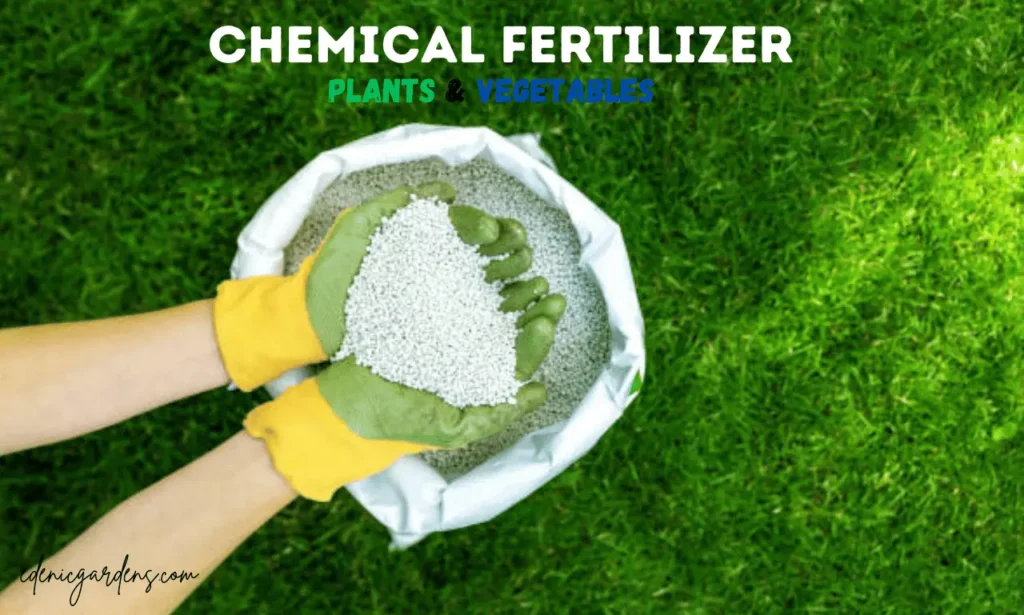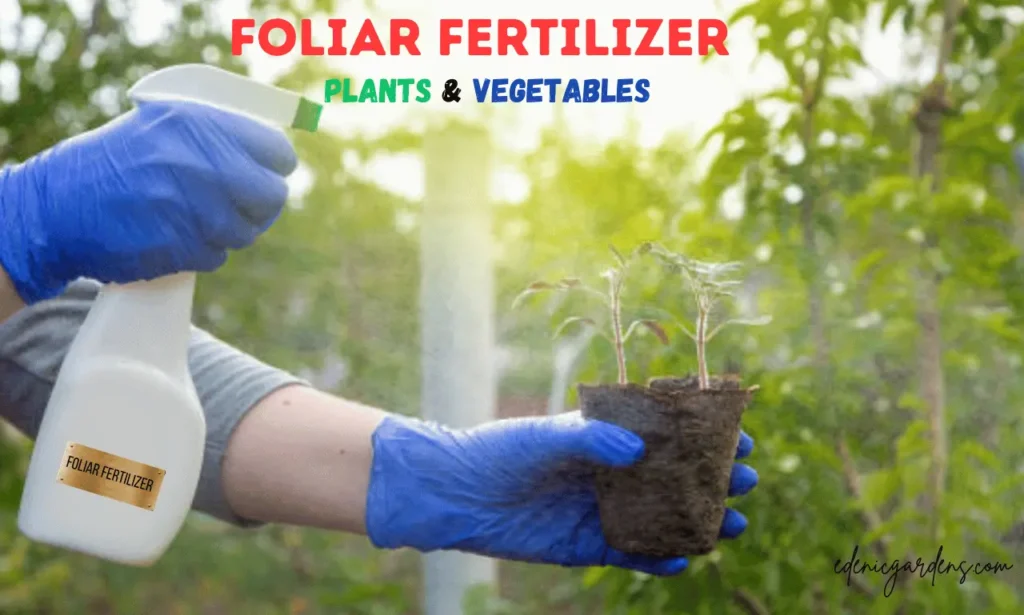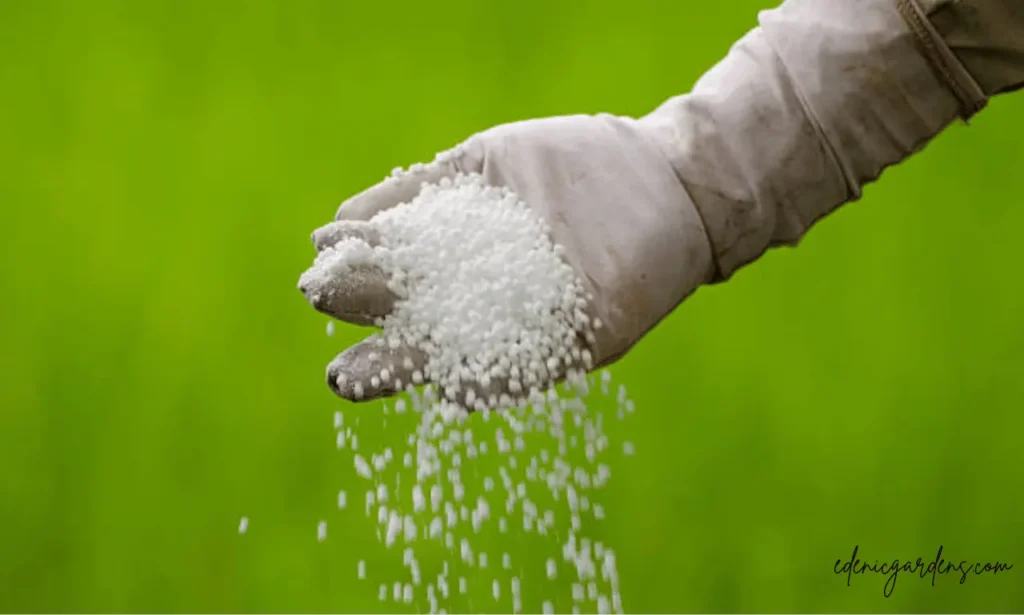In my gardening journey, I’ve learned that every plant has its own personality, much like people do! I supposed to know which one was truly the Right Fertilizer for plants and vegetables. Some plant want nitrogen for leafy growth while others need phosphorus to bloom beautifully. Whether you’re nurturing vibrant flowers or cultivating fresh vegetables, knowing how to choose the right fertilizer can make all the difference in your garden’s success. Join me as we explore practical tips and insights from my experience that will empower you to select the best fertilizer for your green companions, let’s start this journey!
Complete Fertilizer
Complete fertilizer is a magical blend of essential nutrients that plants want to thrive. A well-balanced complete fertilizer contains three key ingredients, nitrogen, phosphorus (or phosphate), and potassium (or potash).
- Nitrogen: Making plants lush and vibrant.
- Phosphorus: Play a crucial role in root development and flower production, helping your garden bloom beautifully.
- potassium: They enhancing their ability to resist diseases and adapt to environmental stresses.
Using complete fertilizers can simplify your gardening routine. Instead of buying multiple products for each nutrient, you can nourish your plants with a single solution to support their overall health. Applying these fertilizers at the right time boosts the beauty and also the productivity of your garden, ensuring that fruits, vegetables, or flowers flourish abundantly across the seasons.
Chemical Fertilizer

Chemical fertilizers are like a boost of energy for plants, helping them grow faster and stronger. These fertilizers contain essential nutrients which are crucial for plant health and Growth. When farmers use chemical fertilizers wisely, they can produce more food on less land. This is especially important as the world’s population grows and the demand for food rises.
However, using chemical fertilizers too much they lead to soil problems or water pollution if it runs off into rivers and lakes. It’s vital to strike a balance—using just enough fertilizer while also exploring alternatives like organic options that support soil health naturally. By understanding both the benefits and drawbacks of chemical fertilizers, we can make smarter choices that benefit our crops without harming our environment.
Pros
- Chemical fertilizers provide nutrients to plants quickly.
- They can increase the amount of food produced in farming.
- Farmers find chemical fertilizers simple to apply.
- These fertilizers can be tailored to deliver specific nutrients that plants need at different growth stages
- Chemical fertilizers are usually cheaper than organic options.
Cons
- Over use can harm soil health.
- Rain can wash excess chemicals into rivers and lakes, polluting water sources.
- Farmers may become reliant on chemical fertilizers instead of improving natural soil fertility
- If used incorrectly, they can burn plants or cause nutrient imbalances that harm crops.
Foliar Fertilizer

Foliar fertilizer is a powerful tool for boosting plant health and growth right where it matters most on the leaves Instead of waiting for nutrients to soak into the soil. This method allows plants to absorb vital elements through their foliage. This can lead to quicker results and helps fix nutrient deficiencies much faster than traditional soil fertilizers.
- Best things about foliar feeding is its versatility.
- Plus, it can help prevent pest issues by strengthening plants’ natural defenses.
- Providing nutrients directly in a targeted way, growers often see vibrant colors and healthier growth—all signs that those leafy greens are thriving!
So next time you’re looking to give your plants an extra boost, consider reaching for that spray bottle instead of digging in the dirt.
Pros
- Plants can absorb nutrients quickly through their leaves.
- You can apply it directly where the plant needs it most.
- It can enhance growth and yield by providing essential nutrients.
- Applying foliar fertilizer is simple and does not require special equipment.
- It can be used on a variety of plants, including vegetables, fruits, and ornamental flowers.
Cons
- The benefits may only last for a short time.
- Rain or high humidity can wash away the fertilizer before it’s absorbed.
- If applied incorrectly or in high concentrations, it can damage the plant’s leaves.
- Not all nutrients are effectively absorbed through leaves.
Organic Fertilizer
Organic fertilizer is made from natural materials like plants, animal waste, and compost. Using these substances not only enriches the soil and also promotes a thriving ecosystem. When you apply organic fertilizers, they are helping beneficial microorganisms that improve soil health and fertility. This is a win for gardeners looking to cultivate lush gardens without relying on synthetic chemicals or fertilizer.
Pros
- They are safer for the environmet.
- They help build healthy soil by adding nutrients and improving its structure over time.
- Organic fertilizers release nutrients slowly, providing a steady supply for plants.
- They support beneficial microorganisms in the soil that help plants grow better.
- Organic fertilizers decreases reliance on synthetic chemicals, promoting a healthier ecosystem.
Cons
- It may take longer to see results compared to chemical fertilizers.
- Organic fertilizers are often more expensive than conventional ones.
- Some organic fertilizers have strong odors that can be unpleasant when applied in gardens or lawns.
Simple Fertilizer
Fertilizers are like vitamins for plants, helping them grow strong and lush. When we think about simple fertilizers, options like compost and aged manure often come to mind. These natural solutions not only nourish the soil but also improve its structure, allowing roots to breathe and absorb water more effectively.
- They are easy to make at home—just collect kitchen scraps or yard waste and let nature do the work!
Moreover, using simple fertilizers minimizes the risk of chemical runoff that can harm our waterways. That nurturing our plants is a beautiful cycle of giving and receiving—simple yet profound in its impact.
Pros
- Simple fertilizers are straightforward to apply.
- They provide immediate nutrients to plants, helping them grow faster.
- They provide immediate nutrients to plants, helping them grow faster.
- Regular use can enhance soil structure and fertility over time.
- Simple fertilizers are often less expensive than complex formulations.
Cons
- They usually contain fewer types of nutrients.
- Excessive use lead to harming plants or the environment.
- Using simple fertilizers alone can create imbalances in soil chemistry over time.

Slow-Release Fertilizer
Slow-release fertilizer is a game changer for anyone with house plants. Traditional fertilizers offer a quick boost of nutrients, slow-release options provide a steady supply over time. This means your plants can absorb what they need without the risk of nutrient overload and leading to healthier growth and vibrant foliage.
- One effective way to enhance these fertilizers is by mixing them with organic matter, like compost or worm castings.
This combination not only improves the nutrient profile but also enriches the soil structure, promoting better water retention and aeration. Slow-release fertilizer is an easy step toward becoming a more mindful plant parent.
Pros
- Slow-release fertilizers provide nutrients over an extended period, reducing the need for frequent applications.
- They are less likely to cause plant damage
- They save time and effort for gardeners and farmers.
- Plants can absorb nutrients more steadily, leading to healthier growth and better yields.
- Which helps to protect the environment.
Cons
- These fertilizers often cost more upfront compared to quick-release options.
- If over-applied, slow-release fertilizers can still lead to excess nutrients in the soil over time
- Their effectiveness can vary depending on temperature and moisture levels in the soil.
Homemade Bloom Fertilizer
Creating homemade bloom fertilizer is a fantastic way to enhance your garden’s beauty while being kind to the environment. Using natural ingredients from your kitchen or yard. They saves your money and also ensures that you know exactly what you’re feeding your plants.
Banana peels are rich in potassium, which promotes blooming and fruiting. Simply chop them up and bury them in the soil around your flowering plants for an easy nutrient boost.
Coffee contain nitrogen and they can improve overall soil health. Mix equal parts coffee grounds with eggshells—another excellent source of calcium—and sprinkle this blend around your flowers. Not only will this mixture nourish your blooms, but it will also help deter pests.
Pros
- Making your own fertilizer can save you money compared to buying commercial products.
- You can use organic materials, which are better for the environment and your plants.
- Many recipes are easy and require just a few common household items.
- Homemade options usually contain fewer harmful chemicals, making them safer for use around kids and pets.
Cons
- The effectiveness may vary, as homemade mixes can lack precise measurements.
- Preparing and mixing your own fertilizer takes time that some gardeners may not have
- Some homemade fertilizers might not provide all the nutrients that plants require for optimal growth.
Conclusion
In conclusion, selecting the right fertilizer for your plants and vegetables is crucial for promoting healthy growth and maximizing yields. Understanding the specific nutrient needs of your plants, along with the differences between organic and synthetic fertilizers, can help you make an informed decision. Regularly testing your soil will also provide valuable insights into what nutrients may be lacking or abundant. With this knowledge in hand, you are now equipped to choose the best fertilizer for your garden.
FAQ”S
1. What are the main types of fertilizers available?
The main types are organic (derived from natural sources) and inorganic (synthetic, chemically produced). Organic fertilizers improve soil health, while inorganic fertilizers provide quick nutrient availability.
2. How do I determine my soil’s nutrient needs?
Conduct a soil test to analyze nutrient levels and pH. This will help you identify deficiencies and select a fertilizer that meets your plants’ specific requirements.
3. Can I use garden fertilizer for indoor plants?
While some garden fertilizers can be used for indoor plants, it’s best to choose ones specifically formulated for houseplants to avoid over-fertilization or nutrient imbalance.

